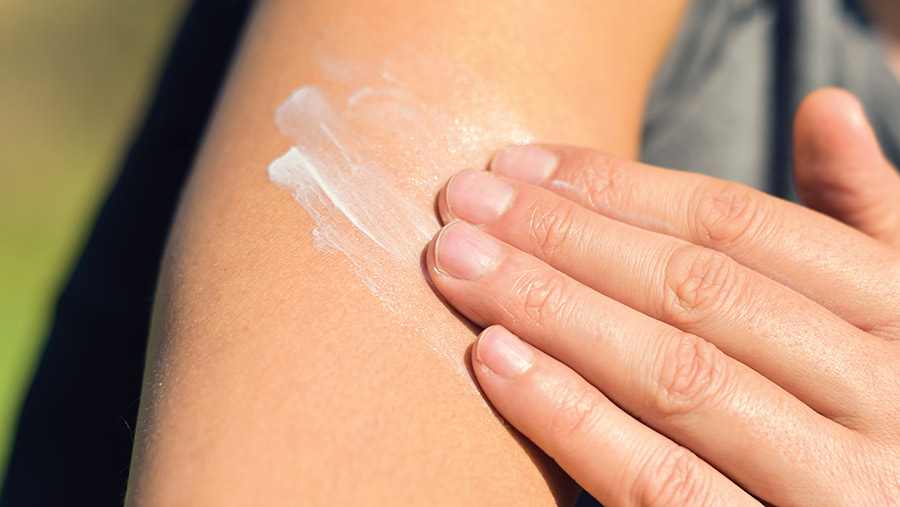Farmers urged to wear sunscreen as skin cancer on the rise
 © Nito/Adobe Stock
© Nito/Adobe Stock As temperatures rise and the harvest season approaches, farmers are being reminded to protect their skin against sun damage, as figures show the instance of deadly melanoma is on the increase.
One of the most common types of skin cancer in the UK, melanoma is caused by sun damage and UV radiation, and can be deadly if left untreated.
A recent study carried out by charity Melanoma Focus found that more and more people are being affected by melanoma in the UK, and sunscreen use remains relatively low.
See also: More articles about rural health and wellbeing
Low use
Latest figures show that 11% of adults admit to wearing sun cream regularly, falling to 8% in men, and 32% admit to never using it despite burning at least once a year.
With the increased sun exposure over the coming months, farmers are reminded to wear a factor 30 or higher sunscreen and take measures to limit their sun exposure when working outside, including wearing hats and sunglasses whenever possible.
Susanna Daniels, chief executive of Melanoma Focus, said: “About nine in 10 melanoma skin cancer cases are preventable and it is vital that people take the warnings about the dangers of excessive sun exposure seriously.
“About seven people die from melanoma every day in the UK and more people die from melanoma in the UK than in Australia.”
Irish warning
The Irish Farmers’ Association (IFA) has also issued warnings, and has estimated that farmers are exposed to two to three times more UV radiation when compared to those working indoors, putting them at a significantly higher risk of skin cancer.
Alice Doyle, the national farm family and social affairs chairwoman at the IFA, said: “Skin cancer is the most common form of cancer in Ireland, with almost 13,000 cases diagnosed each year.
“Most people living in Ireland have fair skin, the type that burns easily and tans poorly, so are at high risk of UV damage and skin cancer.”

